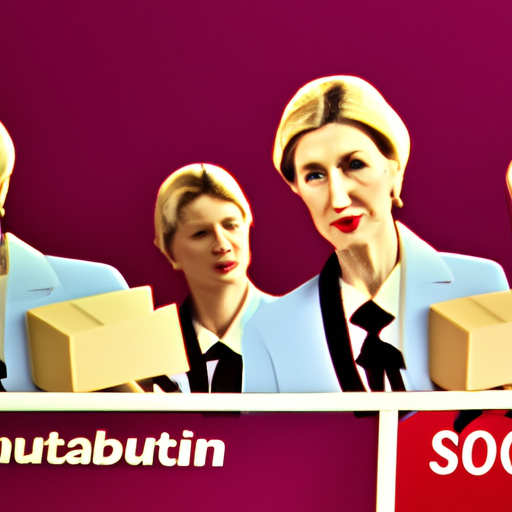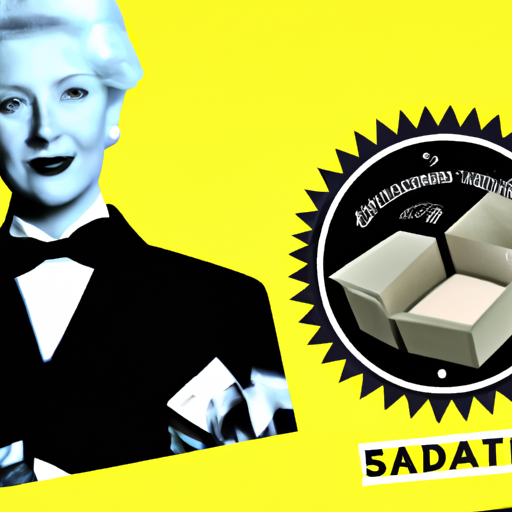
-
Table of Contents
Sustainable Packaging Case Studies: Success Stories

Sustainable packaging has become a crucial aspect of modern business practices. With increasing consumer awareness and concern for the environment, companies are under pressure to adopt sustainable packaging solutions. In this article, we will explore some success stories of companies that have implemented sustainable packaging practices and the positive impact it has had on their business and the environment.
1. Patagonia: A Leader in Sustainable Packaging
Patagonia, the outdoor clothing and gear company, has long been a pioneer in sustainable business practices. They have made significant efforts to reduce their environmental footprint, including their packaging. Patagonia has implemented several sustainable packaging initiatives, such as:
- Using 100% recycled and recyclable materials for their packaging
- Eliminating unnecessary packaging and reducing the overall size of their packaging
- Using soy-based inks and water-based adhesives for their packaging materials
These initiatives have not only reduced the company’s environmental impact but have also resonated with their environmentally conscious customer base. Patagonia’s commitment to sustainable packaging has helped them build a strong brand image and attract loyal customers who appreciate their efforts.
2. Loop: Reusable Packaging Revolution
Loop, a global reuse platform, is revolutionizing the way products are packaged and consumed. They have partnered with major consumer goods companies to create a system where products are delivered in durable, reusable packaging. Once the products are consumed, the empty packaging is collected, cleaned, and refilled for future use.
This innovative approach to packaging has several benefits:
- Reduces the need for single-use packaging, minimizing waste
- Encourages consumers to shift towards a circular economy mindset
- Provides a convenient and sustainable packaging solution for consumers
Loop has successfully launched pilot programs in several countries, and their success has prompted more companies to join the movement. This collaborative effort is driving the adoption of reusable packaging on a larger scale, leading to a significant reduction in packaging waste.
3. Coca-Cola: Sustainable Packaging Commitment
Coca-Cola, one of the world’s largest beverage companies, has made a strong commitment to sustainable packaging. They have set ambitious goals to ensure that their packaging is environmentally friendly and recyclable. Some of their key initiatives include:
- Increasing the use of recycled materials in their packaging
- Designing packaging to be easily recyclable
- Investing in recycling infrastructure and education programs
Coca-Cola’s efforts have resulted in significant progress. They have increased the use of recycled materials in their packaging, reducing their carbon footprint. Additionally, their investment in recycling infrastructure has improved recycling rates in many communities.
4. Lush: Zero-Waste Packaging
Lush, a cosmetics company known for its handmade products, has taken a unique approach to sustainable packaging. They have embraced the concept of zero-waste packaging, aiming to eliminate packaging waste entirely. Some of their packaging initiatives include:
- Using naked packaging, where products are sold without any packaging
- Offering packaging-free alternatives, such as solid shampoo bars
- Using recycled and recyclable materials for their packaging
Lush’s commitment to zero-waste packaging has resonated with their customers, who appreciate the company’s efforts to reduce waste. Their innovative packaging solutions have not only reduced their environmental impact but have also become a unique selling point for their products.
5. Amazon: Frustration-Free Packaging
Amazon, the e-commerce giant, has recognized the importance of sustainable packaging and has implemented their Frustration-Free Packaging program. This initiative aims to reduce packaging waste and make it easier for customers to open and recycle packages. Some key features of Amazon’s Frustration-Free Packaging include:
- Using recyclable materials for packaging
- Eliminating unnecessary packaging and reducing package size
- Designing packaging to be easy to open
By implementing this program, Amazon has significantly reduced packaging waste and improved the customer experience. The Frustration-Free Packaging program has also inspired other e-commerce companies to adopt similar sustainable packaging practices.
Summary
Sustainable packaging is no longer just a trend; it has become a necessity for businesses looking to thrive in a world increasingly concerned about the environment. The success stories of companies like Patagonia, Loop, Coca-Cola, Lush, and Amazon demonstrate the positive impact of sustainable packaging on both the environment and business performance.
By adopting sustainable packaging practices, companies can:
- Reduce their environmental footprint
- Build a strong brand image and attract environmentally conscious customers
- Drive innovation and collaboration in the packaging industry
- Improve customer satisfaction and loyalty
These success stories serve as inspiration for other companies to embrace sustainable packaging and contribute to a more sustainable future.
